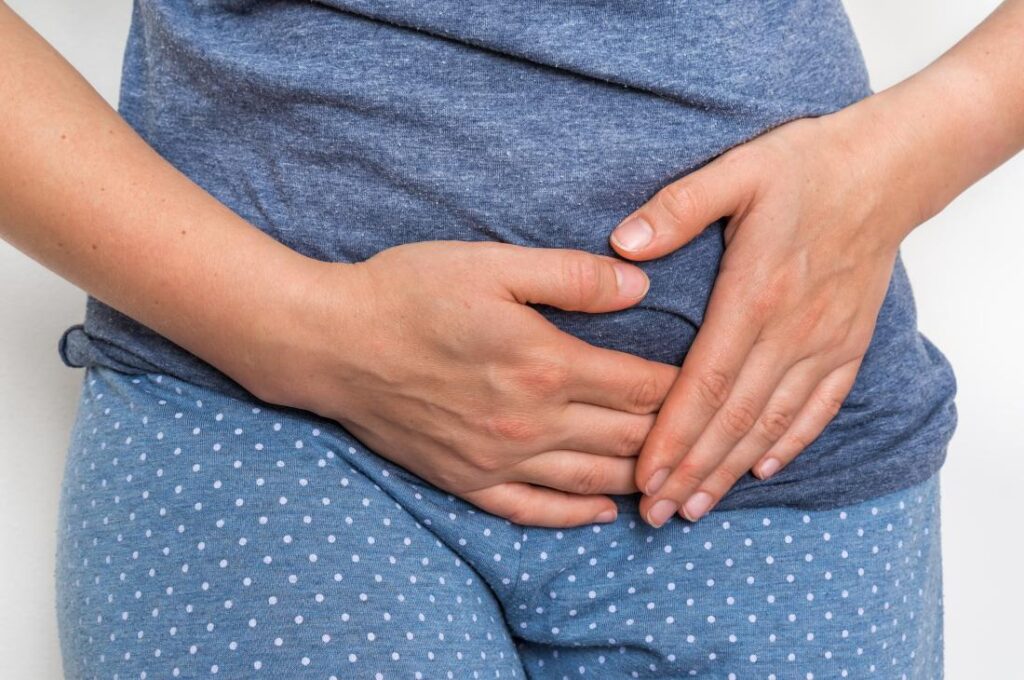
Whether you embrace it or want to run from it, menopause is waiting around a corner, most often hitting women between the age of 40 and 44 years. For many women the menopausal weight gain can seem overnight: Fat gets more easily attached to the body, especially around the midsection, with no lifestyle changes to explain the expanding tummy. However perimenopause doesn’t have to mean the end of feeling and looking great.
According to the Mayo Clinic regular exercise is the best weapon against perimenopause weight gain, and they recommend as little as 10 minutes exercise a day to help combat the dreaded extra belly fat.
Besides helping to prevent weight gain, the Mayo Clinic also found regular exercise to be good for perimenopausal women for the following reasons:
1. Helping to reduce the risk of cancer, especially breast, colon and endometrial.
2. Strengthening bones. Bone loss and fragility in bones are known consequences of perimenopause and menopause. By training regularly, women can slow bone-loss and lower the risk of fractures and osteoporosis.
3. Regular exercise can also hold off/reduce the risk of diseases, which can come with weight gain: Diabetes and heart disease.
4. Last, but not least. Exercise will lift your mood. Regular exercise in adults lowers the risk of depression and cognitive decline. Exercise releases the feel-good neuro-transmitters in the brain: endorphins and dopamin. If you run or do other kind of aerobic exercise, you’ll also increase the production of serotonin – a third feel-good drug.
According to research any kind of exercise can be beneficial, but it’s worth mentioning that aerobic exercise is one of the best exercises for weight loss/weight control. And strength training is the best for building muscles and strengthening bones.
It is recommended to start with as little as 10 minutes a day (this could be a walk in brisk pace or a bike ride, or 10 minutes home training). If every day doesn’t fit your schedule, try to get 10-20 minutes done three to four days a week. If you include intensity training in your sessions, you’ll get more fat-burn and better heart and lung condition.
Intensity training could be small sprints during a run or fast biking during a bike-ride, or a set of 10-20 burpees or jumping jacks during a home-training session. For example: Bike for four minutes in leisure pace and one minute as fast as you can, do four sets of these, to bike for 20 minutes total.
It could also be a jog/run, with two minutes jog and 20 seconds sprint, or 800 metres jog, 200 metres sprint. For a duration of 11 minutes total or 3km (5 sets/3 sets). Sets can be added or subtracted, but try at least to do 10 minutes consecutive exercise.
Food and drink intake is another big cursor, which can move the needle away from the negative effects of perimenopause, especially the weight gain.
Here are some of the most important facts to take into account:
1. Alcohol is calories. If you must drink, drink only a glass with food and max. 11 standard drinks pr week (for women) according to official Irish guidelines). Or at least swap every other drink for a glass of water. A glass of wine (12cl) is around 90 calories, while a beer (33cl) is 120 and a strong beer (220 calories for 33cl). Spirits top the list with almost 100 calories for 4cl. In comparison a Cadbury Star Bar at 250 calories, while one Clonakilty Sausage is around 95 calories (according to myfitnesspal.com). For women in their forties with a sedentary lifestyle, the average calories used everyday is 1,800. This of course depends on your height and weight. If you want to know for sure how many calories you need every day, there are many online calculators who can help. Just type in your age, height, weight and activity level and the sites will do the calculation. If you are unsure where to look, you can try myfitnesspal.com, nhs.uk or mayoclinic.org.
2. Reduce intake of pre-made processed food, including fried food (fish and chips), crisps, chicken wings and so on) Food made from scratch at home is often more healthy and the big benefit is that you know what’s in it. Include fatty fish regularly in your diet to get the benefits of Omega 3.
3. If you are smoking, you can slow down the symptoms of ageing and perimenopause by stopping. Your skin and organs will especially benefit from this.
4. Studies have shown that daily intake of D-vitamin delayed the symptoms of menopause for about 17 per cent of the women in the study. Daily intake of vital vitamins and minerals (including calcium) are also recommended. Preferably through your food, but if you are in doubt, you can take a multivitamin pill plus fish oil. However getting your vitals through food is always the best solution.
Lastly, it is of course always recommended to seek advice from your GP, especially if the changes in your body or symptoms you are experiencing are serious. It can also be a good idea to involve your GP if you plan to overhaul your lifestyle from sedentary to active. Maybe there are specific forms of training that will suit your overall health better, depending on pre-existing conditions.
In any case, an overhaul is a positive thing, when done correctly and step by step. Build up your muscles, tendons and ligaments slowly but consistently. Don’t rush out and think you can race a 10 km race or join the fitness centre expecting to bench 50 kg on the first day. Doing too much, too soon, can result in injuries and can put a stop or a break to your goal. So start easy, but consistently and work your way towards your goal from here.



